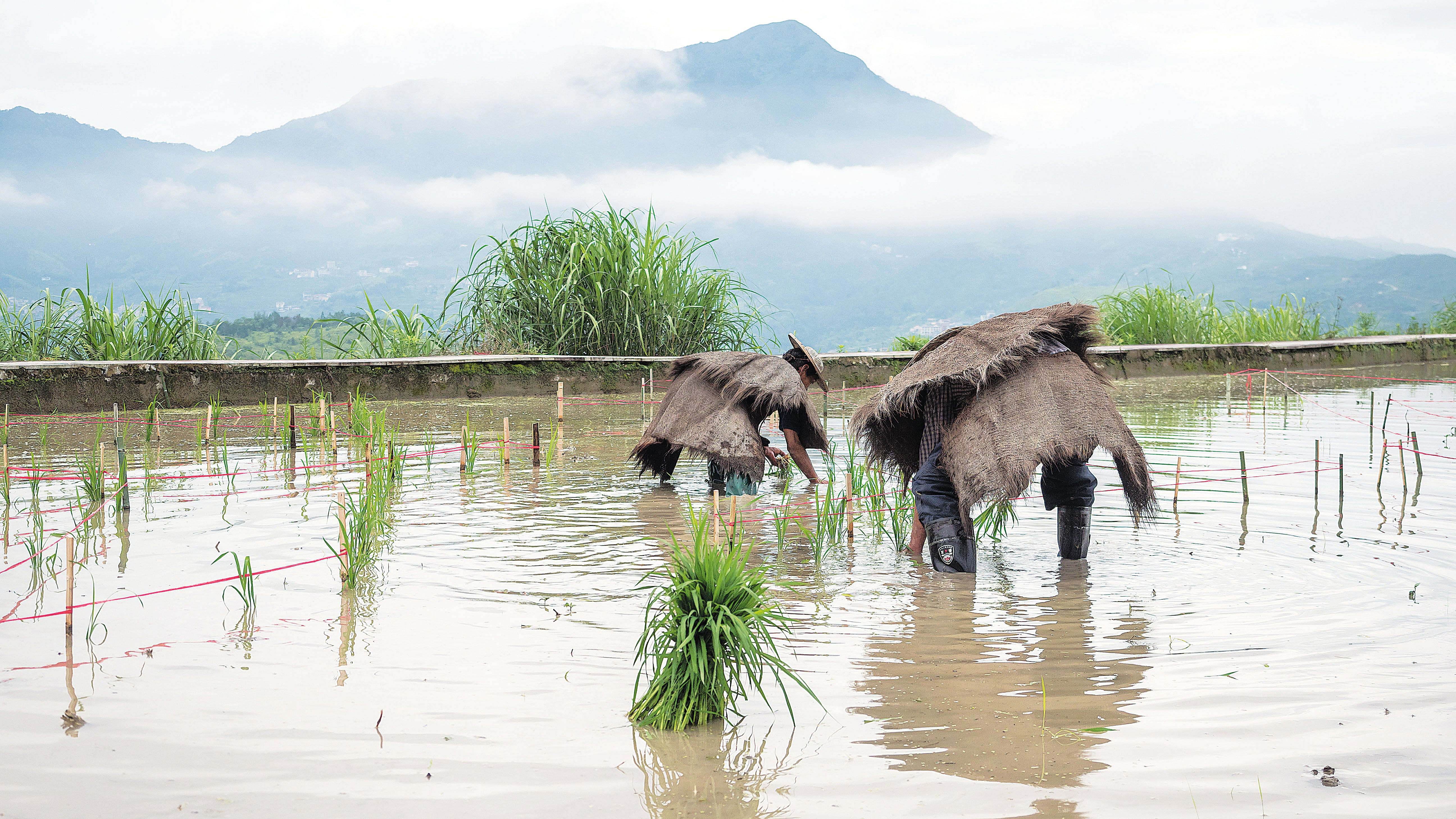Why rice and fish make a productive mix for farmers
THE ARTICLES ON THESE PAGES ARE PRODUCED BY CHINA DAILY, WHICH TAKES SOLE RESPONSIBILITY FOR THE CONTENTS

Wu Lizhen used to make a living by fishing along with her husband in Longxian village in Lishui, Zhejiang province. The villagers once used to rely on their catch to eke out a living.
But Wu’s life began to take a major turn on the road to progress in June 2005, when she was selected to represent the fishermen and women of Fangshan township in Qingtian county, where the village is, at an expert seminar of the United Nations Food and Agriculture Organisation (FAO).
Then she started to receive training and support and began a project in which she planted rice, raised fish and made delicious dishes to attract tourists.
A few years later this model based on rice-fish farming provides Wu’s family a good, stable income on top of income from the yields. Her business income annually now is more than 1 million yuan (£125,000).
“I came back from France and worked as a farmer for 15 years,” says Jin Yuepin, chairman of Zhejiang Fangyuan Ecological Agriculture Development Co Ltd, who received a Model Farmers award from the FAO in 2014 for his contribution to producing safe and green fish food, as well as for increasing villagers’ incomes and helping preserve agricultural traditions.
Jin, a pioneer of aquaculture in rice paddies in the county, says mountainside villagers in his hometown plough and weed paddy fields with the same attention to detail as required in carving jade.
“Rice-fish farming in Qingtian is a typical way of ecological agricultural production.”
This rice-fish aquaculture system has fed local people for more than 1,300 years, he says.
Fish are raised in rice paddies, saving space and labour so farmers can produce more crops and fish, while rice can also provide the shade and bait for fish.
Rice grown in this way has high nutritional value and the fish are soft and delicious to eat, Jin says.
In Songshuxia, Jin’s native village, villagers had no other income in the past except for raising fish due to the remote location. In 2016 Jin started a project to develop rice-fish farming, which trains more than 100 locals, and gives them technical support.
Fish larvae are also provided. The villagers are responsible for raising fish, and Jin buys fresh fish and other agricultural products and sells them in the market.“No chemical fertilisers and pesticides are allowed here,” he says.
Jin has designed the outer packaging and logo of the fish products, applied for certification and has invented a portable vacuum bag that can effectively extend the lives of fish to more than 100 hours after being caught. Fresh fish are put into the bags filled with water and transported to the airport in Shanghai by a truck equipped with an oxygen pump. Then the fish are exported to Spain and Italy.
Last year the symbiotic aquaculture system in Qingtian produced rice and fish worth 265 million yuan (£33 million).
In 2005 the aquaculture system was designated by the FAO as one of the first batches of the “globally important agricultural heritage” protection pilots.
“The protection of agricultural heritage depends on local farmers, so it is necessary to make them culturally confident and conscious, so that they are willing to protect the culture,” says Min Qingwen, a researcher at the Institute of Geographic Sciences and Natural Resources Research, Chinese Academy of Sciences.
“They can be supported by policies, technological assistance and market development, so that they can truly benefit from agriculture.”
Subscribe to Independent Premium to bookmark this article
Want to bookmark your favourite articles and stories to read or reference later? Start your Independent Premium subscription today.